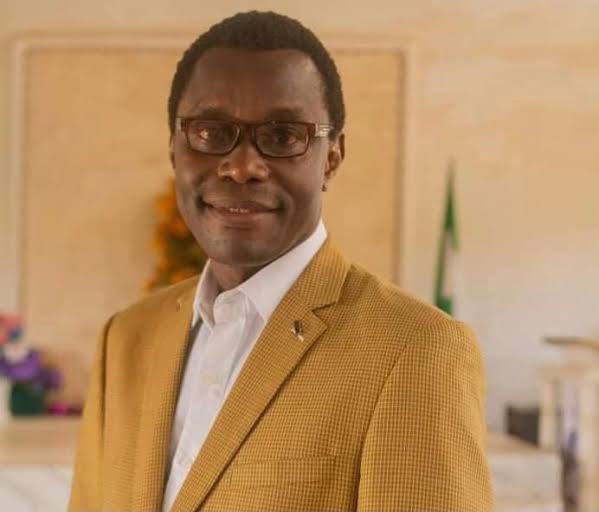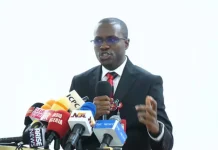The devastating wildfires ravaging Los Angeles and other parts of California serve as a grim reminder of the urgency of addressing climate change. These fires, which have destroyed thousands of homes and claimed lives, goes on to spotlight the role of human activity in exacerbating the climate crisis.
While in Nigeria, cases of wildfires are rare, the lessons from the Pyrocene—the era of iincreased fire activity caused by human influence—should not be ignored. Which goes without saying that the connection between climate change, peace, and security is one
every individual is obliged to see to for the sake of their future.
Whether you like it or not, climate change impacts everyone – you cannot run away
from it as long as you are on earth. Its consequences often manifest in ways that
threaten peace and security. In the country, desertification in the North, coastal erosion
in the South, and erratic rainfall across the country disrupt livelihoods while increasing
the tensions over scarce resources. This strain on resources does a lot to fuel insecurity, as communities are in fierce competition over arable land, water, and economic opportunities. By taking action to fight climate change, individuals contribute not only to environmental preservation but also to promoting and preserving peace and stability.
For Nigerians, we can and should begin by reducing reliance on activities that harm the
environment. Uncontrolled bush burning, often used to clear land for farming, releases
greenhouse gases and depletes soil fertility. This practice mirrors the challenges seen
in California, where human actions have significantly increased fire risks. Switching to
sustainable farming practices, such as crop rotation and agroforestry, not only benefits
the environment but also enhances food security, which is a vital component of peace.
Energy consumption is another area where individuals can make a difference. The
heavy reliance on fossil fuels for electricity and transportation in Nigeria contributes to
global warming. Transitioning to cleaner energy sources, like solar power, reduces
greenhouse gas emissions. Installing solar panels at home, using energy-efficient
appliances, and carpooling or opting for public transport are small but impactful
solutions. These changes not only combat climate change but also reduce the pressure
on Nigeria’s power grid – which, on the side, seems to be weakening with its constant
collapses – promoting stability in urban areas.
Waste management is also crucial as poor disposal of waste, particularly plastics,
contributes to flooding during the rainy season. This, in turn, exacerbates the
displacement of communities and the destruction of property. Proper recycling and
reducing single-use plastics can mitigate these risks. Community clean-up campaigns
and environmental education initiatives can create collective awareness and inspire
action.
Tree planting is another effective way to address climate change. Trees absorb carbon
dioxide, a major greenhouse gas, and help restore degraded land. Joining reforestation
projects or planting trees in local communities can combat desertification in the North and reduce flooding in the South. Such efforts not only restore ecosystems but also create jobs and promote economic stability.
We could also look into water conservation to tackle the ills posed by drought and
erratic rainfall. Simple actions like fixing leaks, using water-efficient fixtures, and
harvesting rainwater can alleviate pressure on water resources. These, in turn, would
help communities have access to clean water, reduce conflicts over scarce supplies and
fostering harmony.
While the wildfires in Los Angeles are simply a wake-up call for global collective
action against climate change, back home, they offer a chance for each and every
Nigerian to reflect on how our actions, no matter how small, can exacerbate or
alleviate the environmental crisis. By making sustainable choices in agriculture, energy,
waste management, and water use, we contribute to a healthier planet and a more
peaceful, secure Nigeria.
Galatians 6:7 KJV: Be not deceived; God is not mocked: for whatsoever
a man soweth, that shall he also reap.
Prof. Ofonime Emmanuel Bassey is a consummate professional with more than
thirty (30) years work experience in Consulting, Conflict Resolution, Peace
Building, Security, Law Enforcement, Academia, United Nation Peace Mission
and an Apostolic Leader.
Ofonime is an author of more than thirty (30) books, a certified United Nation’s
Trainer, and currently a Professor of Leadership, Peace, and Conflict Resolution
with ICOF University, USA/Zambia and a Professor of Peace Education with
Charismatic International University, Cameroon.
With his marks well-established in Peace Leadership both in Nigeria and Africa,
he is the President/Chancellor, NISSI Safety Management Institute: An Institute
famous for Peace Leadership.
Presently, he is spearheading a campaign tagged “The Next Peace Leaders”, a
campaign that is billed to run from 2022-2030 with a target of training 37,000
young peace leaders..
For leadership, conflict, peace and security consultations and trainings, reach
him via:
Facebook: Dr. O.E Bassey
LinkedIn: Dr. O.E Bassey
X: Dr. O.E Bassey
WhatsApp: +2347065828892
Mail: emmanuelbassey@gmail.com
Share your story or advertise with us: Whatsapp: +2347068606071 Email: info@newspotng.com

















